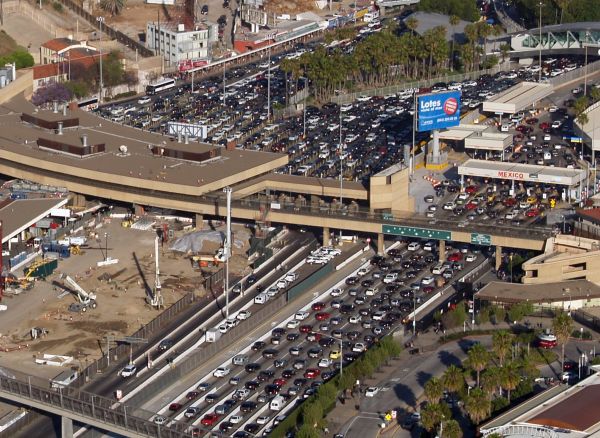The International Air Transport Association, the International Chamber of Shipping, the International Road Transport Union and the International Transport Workers’ Federation, have jointly called for governments to not reimpose border restrictions on transport workers as a “knee-jerk reaction” to the Omicron variant of the Covid virus.
They say that a week since the World Health Organization (WHO) designated the new Omicron strain of Covid-19 as a “variant of concern”, at least 56 countries have reimposed varying degrees of travel restrictions.
The transport bodies have called for an end to the rushed and fragmented approach to travel rules by governments. They called on heads of state to listen to industry leaders and workers and take decisive and coordinated action to ease strain on the supply chain, and support an exhausted global transport workforce during the busy holiday season.
But they warned that governments were reneging on clear steps issued to world leaders in September to guarantee the free and safe movement of transport workers and to prioritise those that had received WHO-recognised vaccines.
A crisis meeting with the World Health Organization (WHO) and the International Labour Organization is scheduled for Monday 6 December.
Secretary general of the International Chamber of Shipping Guy Platten, said: “Unless coordinated action is taken by world leaders we will see a return to the peak of the crew change crisis in 2020 where more than 400,000 seafarers were impacted by unnecessarily harsh travel restrictions.”
IATA director general Willie Walsh, added: “After nearly two years of dealing with COVID-19, we should have progressed beyond these knee-jerk, uncoordinated, Pavlovian-like responses. Public health officials tell us that we should expect variants to emerge. And by the time they are detected, experience shows that they are already present around the globe. Border restrictions that block air crew from doing their jobs will do nothing to prevent this while inflicting serious harm to still-recovering global supply chains and local economies.”
ITF general secretary, Stephen Cotton, said: “The same governments that have blocked global vaccine access are now the first to lock down their borders to keep the Omicron variant out. Instead of pursuing a global solution to this pandemic, their decisions further risk supply chain collapse. It’s not only morally reprehensible, it’s economic self-destruction. We need universal access to vaccines now. It’s imperative for all of us to tell governments to stop bowing down to big pharma and pave the way so that every country can produce the vaccines needed to end this pandemic.”
IRU secretary general, Umberto de Pretto, concluded: “Once again, Covid history is repeating itself with governments unilaterally changing hundreds of rules affecting cross border transport workers within a matter of hours. Truck drivers are again caught in the middle and paying a heavy price in simply doing their job to keep global supply chains functioning. They, and all of us who rely on their service, deserve much better.”
(Picture: Phil Konstantin)






